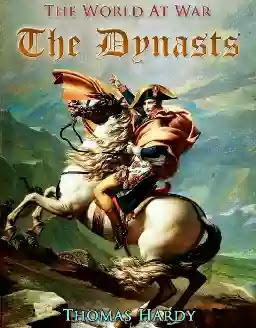Also Read
Summary
The Dynasts is the epic-drama written by Thomas Hardy. It is divided into three parts and contains nineteen acts and 130 scenes. It traces the Napoleonic wars from 1805 to 1815. Part I begins with Napoleon as newly proclaimed emperor locked in battle with Pitt. Part II starts Napoleon at the height of power but gradually the star of Wellington rises in the peninsular campaigns. Part III shows Napoleon's catastrophe: Moscow, Spain, Leipzig, Waterloo. Wellington and England have risen to lustre matching Napoleon's and at the final showdown Napoleon in defeat rides into the wood of Bossu and out of history. The historical passages are faithful to fact, though scenes range from rustics to Wessex through all the swirling courts and battlefields of Europe to "Phantom Intelligences" observing the titanic struggle from outer space.
Critical Analysis
Hardy's most impressive devices are distance and contrast. From their astral heights the spirits perceive the huge continental armies as slowly crawling caterpillars. Scenes of aristocratic splendour contrast with bestial carnage and the brutal sufferings of little people. Especially savage is the contrast of the arrogant, empty-headed Regent (later George V) with the cold misery of his contemporaries.
Prose passages, often of poetic intensity intersperse the standard blank verse. Some stanzaic verse is employed, notably in the choruses of "Phantom Intelligences".
The Dynasts expresses the typical philosophical views of Hardy. All mankind is part of the blind indifferent Immanent Will. Napoleon realises that he is an instrument of the Will. The dynasts carry the laws of the jungle into international politics all the diplomacy and decorum mask the animal lust for power and possessions. The conclusion has an optimistic note. "Consciousness the Will informing, till it fashion all things fair!" Hardy deemed best the terza rima prelude to Waterloo. His images are impressive. Hardy has dramatic grasp of a stupendous historical spectacle.
The structure of The Dynasts embodies what he liked to call his philosophical 'impressions'. The actions of the huge cast of human characters from Napoleon down to the common soldiers and ordinary people of Wessex are subject to the Immanent Wil, the controlling power of the universe which bears no resemblance to the Christian God. Events are commented on by impersonated abstractions or intelligences, called Spirits including the Ancient Spirit of the years, the Spirit of the pities, the Spirit of the rumour, and the Spirits sinister and ironic. The Dynasts combines a variety of verse forms with scenes and descriptions in prose.
